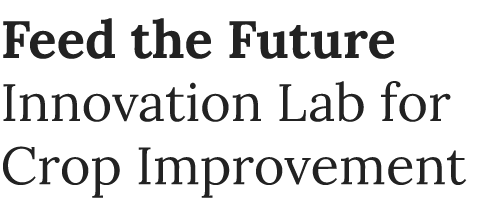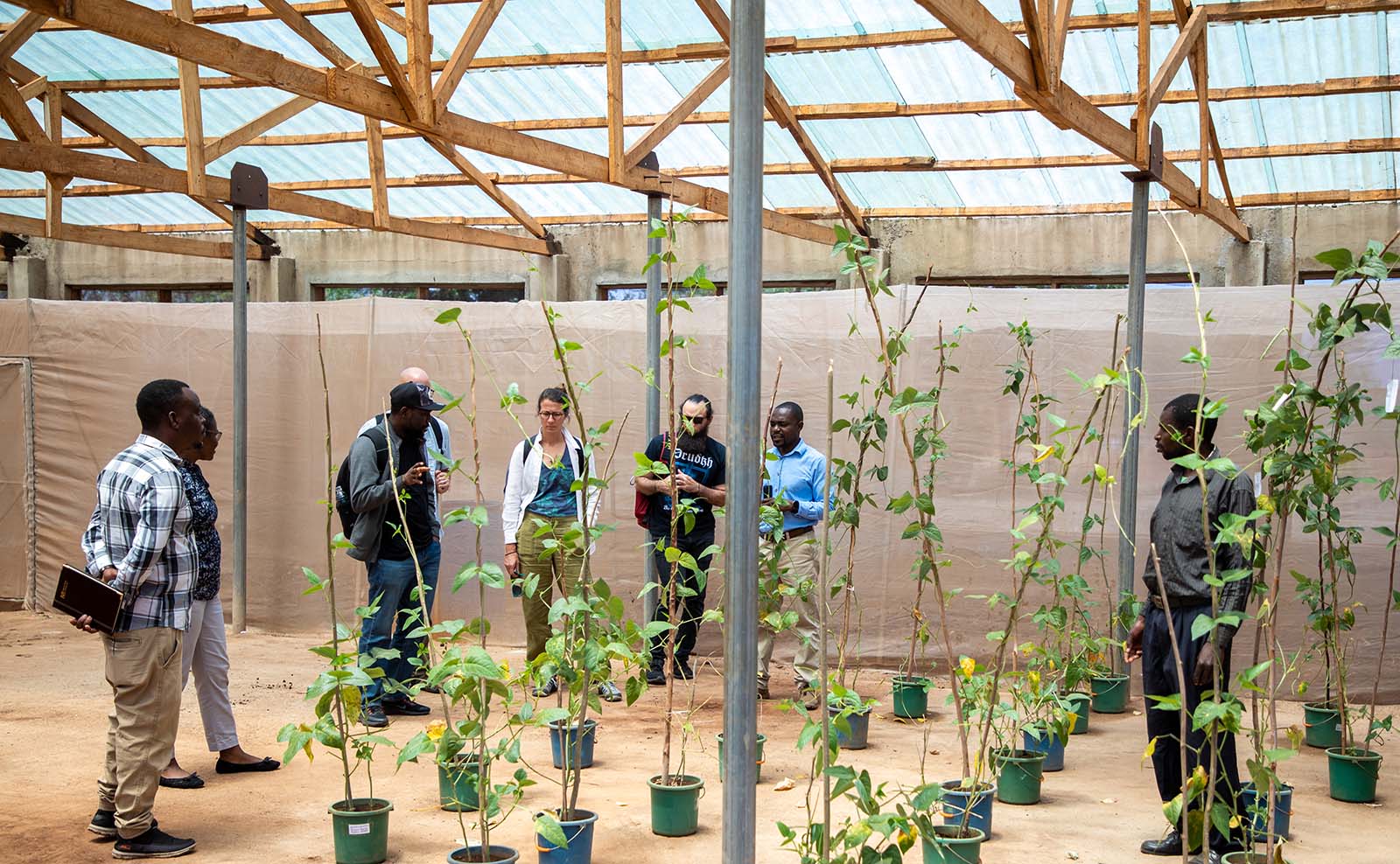In the arid regions of East and Southern Africa, cowpea is a vital crop. Renowned for its resilience to poor soils and dry climates, cowpea serves as a stable food source for farmers contending with unpredictable weather patterns. However, increasingly erratic climate continues to pose significant challenges for farmers. To further boost cowpea’s resilience and productivity, plant breeders in East and Southern Africa are collaborating with scientists internationally under the Feed the Future Innovation Lab for Crop Improvement (ILCI) to develop varieties with higher yields, drought tolerance, and high nutritional value.
This fall, ILCI researchers from the U.S. and Africa convened in Malawi for intensive workshops aimed at advancing cowpea breeding efforts and building sustainable scientific capacity in the region. The three-day, in-person workshops built on years of remote collaboration. Hosted by the Lilongwe University of Agriculture and Natural Resources (LUANAR) and organized by ILCI’s Center of Innovation for Crop Improvement for East and Southern Africa (CICI-ESA), the workshops gathered 12 plant breeders and researchers from Malawi, including those from the national breeding program, the Department of Agricultural Research Services (DARS).
The workshops focused on high-volume data analysis, led by Bethany Econopouly, Alex Kena, David Hickok and Brandon Monier. Together, they shared techniques to help African scientists use large-scale genetic datasets and optimize breeding operations, ultimately enabling quicker, data-driven decisions in breeding programs.
“This workshop was transformative for our breeders. They now have the tools and confidence to independently analyze complex data, which is essential for accelerating cowpea breeding in our region.”
Michael ChipetaSenior Lecturer at LUANAR and CICI-ESA Principal Investigator
These sessions focused on equipping African breeders with essential skills to manage and analyze extensive genotypic and phenotypic data, bridging a technological gap that can hinder the progress of breeding programs in low- and middle-income countries, according to Econopouly.
“Our goal is for African scientists to have the tools and skills to conduct their experiments and analyses, ensuring sustainable breeding programs without external dependency,” Econopouly said. “With access to rigorous experimental design, genetic and phenotypic data, breeders can make more precise, data-driven decisions that will improve cowpea varieties.”
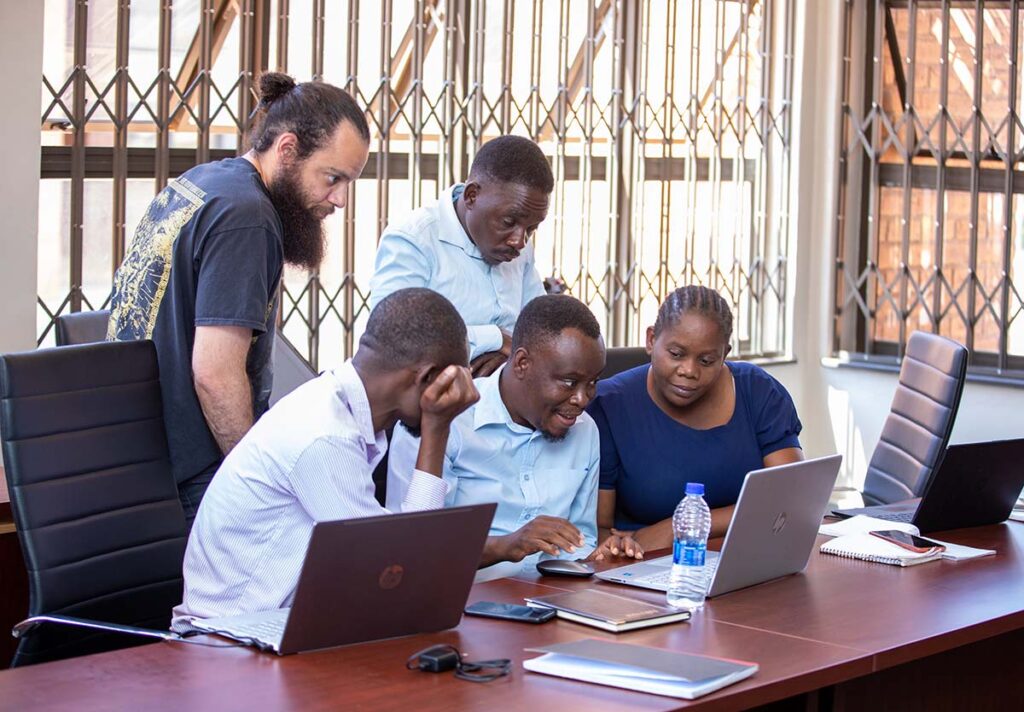
Doctoral student David Hickok, left, works with Malawi plant breeders on tools to manage and analyze extensive genotypic and phenotypic data.
The ILCI team’s work centers on empowering African plant breeders with resources and knowledge to develop crop varieties tailored to their environments. The diverse expertise of the training team added depth: Kena, a senior lecturer at Ghana’s Kwame Nkrumah University who supports ILCI’s trait discovery efforts; Hickok, a Cornell Ph.D. student in plant breeding and genetics; and Monier, a genomic informatician in the Buckler Lab.
For many of the Malawian breeders, this workshop provided their first in-depth experience with large-scale data analysis through the ILCI network. Michael Chipeta, a senior lecturer at LUANAR and CICI-ESA principal investigator, who leads the collaboration, expressed enthusiasm about its impact.
Previously, communication with ILCI scientists had been remote and limited to a few researchers. This in-person event enabled broader participation, fostering collaboration and knowledge exchange across institutions.
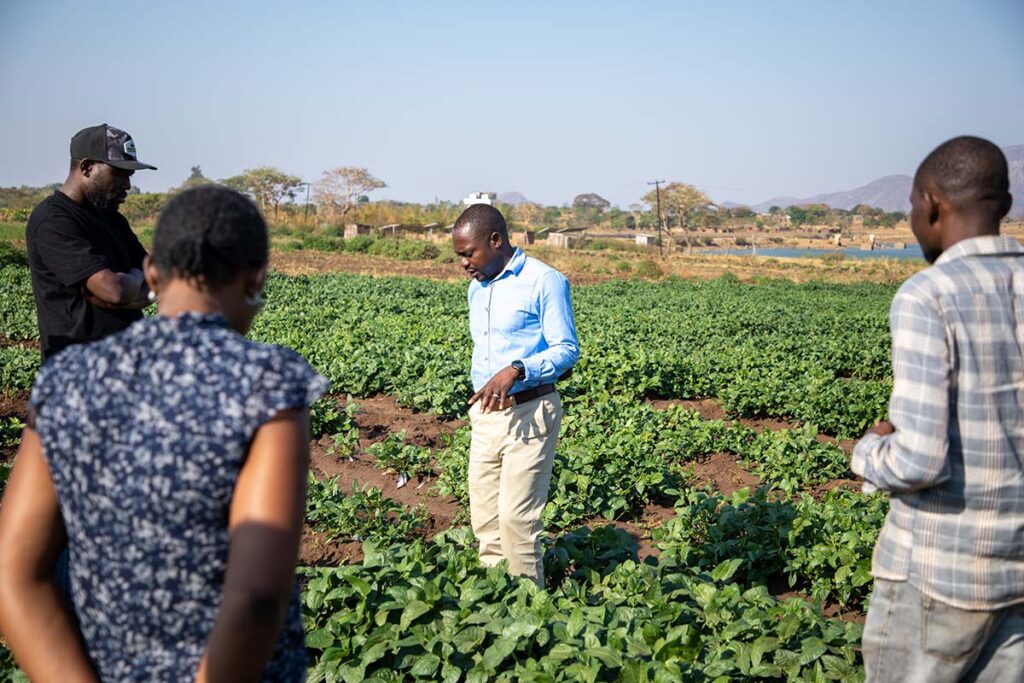
Michael Chipeta, center, tours fellow ILCI researchers through cowpea field plots at LUANAR in September.
“This workshop was transformative for our breeders,” Chipeta said. “They now have the tools and confidence to independently analyze complex data, which is essential for accelerating cowpea breeding in our region.”
More than a skills-building session, the ILCI workshops fostered connections that will strengthen future collaborations. With new analytical tools and insights, plant breeders in East and Southern Africa are now better prepared to address challenges, from climate resilience to food security. As ILCI researchers continue their work, they underscore a critical goal: empowering regional scientists to lead and sustain their breeding programs. By strengthening African breeders’ capabilities, this partnership is laying the foundation for resilient, locally adapted crops that address both current and future challenges.
